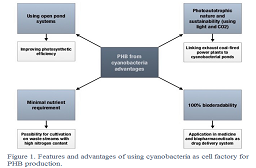Day 2 :
Keynote Forum
Eric Leroy
CNRS, France
Keynote: Processing of natural polymers based materials using ionic liquids
Time : 09:00-9:30

Biography:
Eric Leroy joined CNRS in 2008. He studied materials engineering and science at the National Institute of Applied Sciences (INSA) of Lyon. After obtaining a PhD in polymers and composite materials in 2000, he worked as a contracted researcher at the Donostia International Physics Center in San Sebastian, Spain, before joining the Alès School of Mines, France, as an assistant professor from 2002 to 2007. Author of 43 articles with over 1000 citations, he received the CNRS Bronze medal in 2013.Abstract:
The recent concerns for carbon management (including fossil fuels use and CO2 emissions) have drawn attention on biobased plastics, including natural polymers. When compared to petroleum based plastics, these polymers obtained from plants are generally considered as relatively weak, with low mechanical performances and more complex processability, due to water sensitivity and/or low thermal stability. Nevertheless, this current objective of replacing petroleum based commodity plastics may hide other opportunities for the use of natural polymers as structural and/or functional materials in applications that would take advantage of their specific properties. This approach will be illustrated by different examples of our recent research involving the use of ionic liquids as processing aids and functional additives for the design of functional and bioinspired materials from starch, cellulose and natural rubber.
Keynote Forum
Maximilian Lackner
Lackner Ventures & Consulting GmbH, Austria
Keynote: Sustainable PHB production from CO2 and sunlight using cyanobacteria
Time : 10:30-11:00

Biography:
Dr. Maximilian Lackner earned his PhD in 2003 and his habilitation in 2009 from Vienna University of Technology. He has held several senior leadership positions in the polymer industry in Austria and China. Dr. Lackner has founded 5 companies, amongst them one for antimicrobial polymers and one in the area of bioplastics, Lackner Ventures & Consulting GmbH. This company collaborates with JinHui Zhaolong, one of the largest PBAT manufacturers. The research interests of Dr. Lackner include PHA and PBAT. Lackner Ventures & Consulting GmbH runs a research project to produce PHB from CO2 and sunlight using cyanobacteria. Dr. Lackner has authored more than 100 scientific articles. He teaches materials science at the University of Applied Sciences FH Technikum Wien.Abstract:
The use of conventional plastics has become a huge environmental concern. is a growing concern, leading to resource depletion and littering (e.g. microplastics pollution of the sea). Polyhydroxybutyrate (PHB) is formed as energy storage compound by several microorganisms. It has thermoplastic properties and can be a replacement for PP. PHB is fully degradable, also in the marine environment. Today, PHB is synthesized by heterotrophic bacteria using sugar fermentation. The relatively high costs of raw materials and continuous oxygen supply for the processing make PHAs expensive in comparison to other petroleum-derived plastics. Methodology and theory: The alternative is to use certain oxygenic cyanobacteria as cell factory. Cyanobacteria can store PHB under nutrient (P, N) limitation from renewable and sustainable resources sunlight and CO2 and due to their minimal nutrient requirement are the most promising host system for PHB production. However the growth rate and the PHB yield stay low. There exists no general method to increase PHB yield in cyanobacteria. This work aims at making cyanobacteria competitive by optimization of growth conditions and by strain selection. Findings: We screen for wild type strains which can naturally accumulate PHB. During our systematic screening we have discovered a cyanobacterium sp. strain which naturally accumulates a high PHB content under N and P limitations in comparison to other existing strains. The improvement of the strain is possible using process engineering and natural mutations. Significance: Our project can develop an economically superior bioprocess to enhance biomass growth and PHB productivity and prove feasibility to use CO2 for production of biodegradable plastics.


